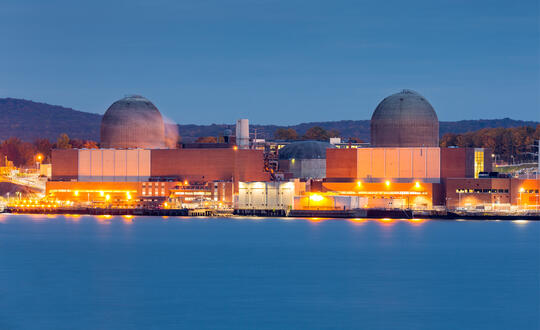U.S. Senate Passes Bill to Boost Nuclear Energy Deployment
Jul 01 2024
An audio summary of this article is available in the player below. Scroll to keep reading.
Listen and subscribe to Womble Perspectives wherever you get your podcasts.
The U.S. Senate has passed a groundbreaking bill aimed at accelerating the deployment of nuclear energy capacity. The ADVANCE (Accelerating Deployment of Versatile, Advanced Nuclear for Clean Energy) Act seeks to expedite permitting processes and introduce new incentives for advanced nuclear reactor technologies.
This move has garnered strong bipartisan support. Democrats view expanding nuclear power as essential for combating climate change, while Republicans see it as a means to ensure a reliable electricity supply. Lawmakers on both sides of the aisle touted the ADVANCE Act’s potential to create jobs. Even in the current contentious political climate (and in an election year, no less), the Senate passed the bill with an overwhelming 88-2 vote, indicating broad consensus on the issue.
Having already passed in the House of Representatives, the bill is now headed to President Joe Biden for his signature to become law. The President has indicated he plans to sign the bill into law.
The legislation includes several key measures:
Nuclear energy currently provides around 19 percent of U.S. electricity generation, according to the U.S. Energy Information Administration. It is easily the largest source of carbon-free power currently in use. By comparison, wind energy accounts for 10 percent of electricity generation, and hydroelectric power contributes another 6 percent. So expanding nuclear energy production is a direct route to increasing net-zero energy production and reducing the country’s reliance on imported oil and gas.
Nuclear energy is easily the largest source of carbon-free power currently in use. So expanding nuclear energy production is a direct route to increasing net-zero energy production and reducing the country’s reliance on imported oil and gas.
But the U.S. nuclear industry has faced significant challenges over the past few decades. High costs and complex permitting requirements have stymied expansion efforts, while funding and developing advanced nuclear technologies have proven difficult.
The ADVANCE Act marks a significant step forward for the U.S. nuclear industry. By reducing regulatory barriers and incentivizing innovation, the bill aims to revitalize nuclear energy deployment, addressing critical issues of climate change, energy reliability, and job creation. The energy sector will be watching closely as this bill moves towards becoming law, potentially ushering in a new era for nuclear power in the United States.